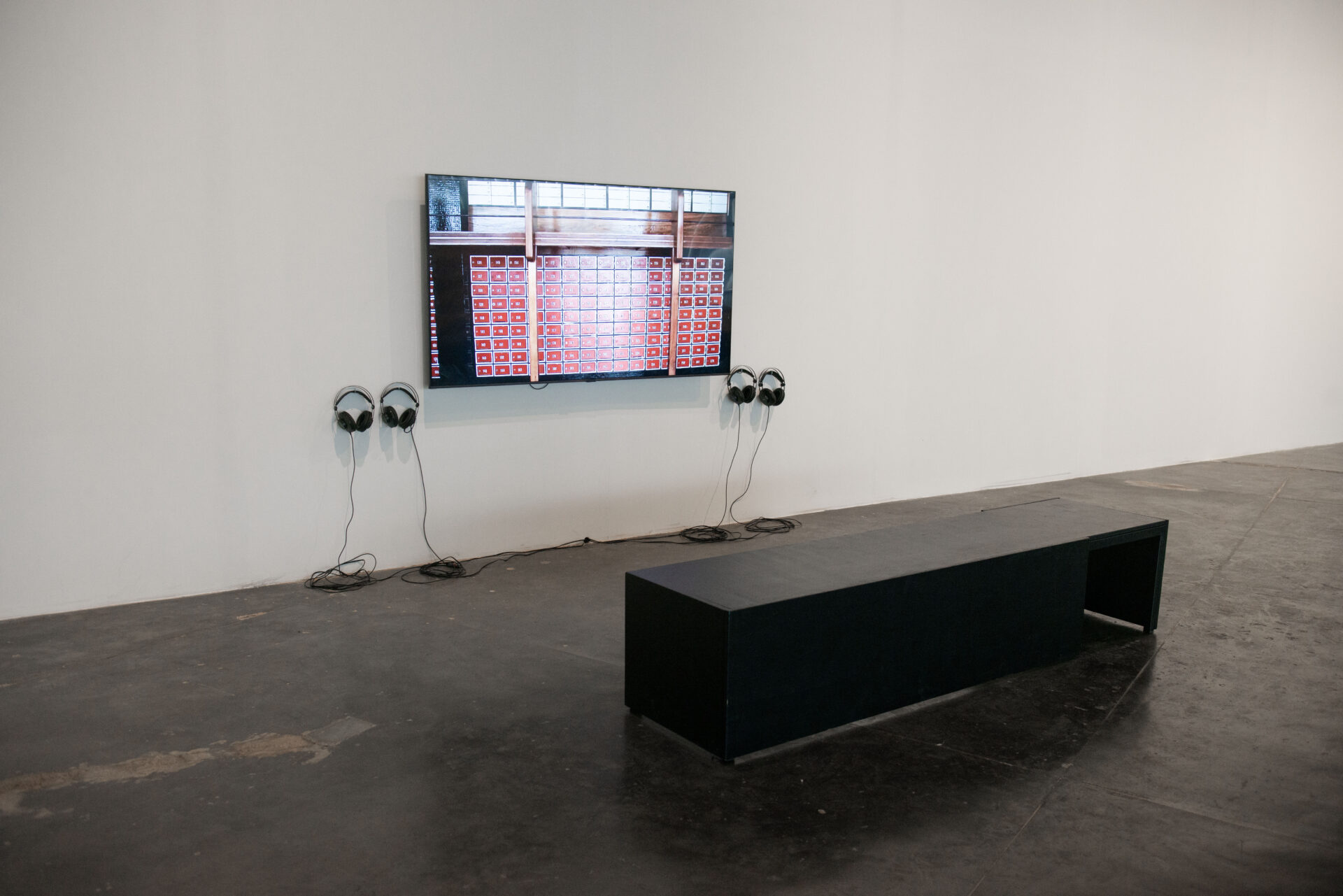
Raquel Lima
In Rasura [Erasure] (2021), Raquel Lima revisits and reinvents a history permeated by trauma – intimate, social, and collective trauma. Between abandonment, ruins, layers of writing and habits, her poetry-performance transposes the many preceding centuries through reminiscences that subsist and return to the surface as if in an eternal cycle. It is not possible to interrupt the time that is running, but Lima finds ways to cross it, shape it with her voice, and decipher it with her body in movement.
The word “erasure” (rasura) is used beyond its semantics, holding in it the key to decoding and translation. And if this word is not the starting point of her thought, it is certainly its point of arrival. In contrast to “deletion” (apagamento), the total annulment of an idea, an identity, or a history, “erasure” presupposes the error, or the intention to partially erase something, or to remake it without disguising it. In the work, “erasure” also means resistance.
From inside small, abandoned boats, Lima has us look out of the window at the surrounding ocean where we see other abandoned boats adrift. More than life, there has been exploitation there, and something has collapsed – but it has not been deleted. On the island of Saint Thomas in the Gulf of Guinea, São Tomé and Príncipe, the once-abandoned colonial houses bear cracks, haunting voids, walls with peeling paint, ruins upon ruins that are nevertheless inhabited in their precarious permanence. Those occupying this scene are Black bodies, part of the primordial history of the place to which their ancestors were taken as merchandise – the human made thing, erased but not deleted.
The trauma of centuries of slavery, whose consequences continue to have repercussions on the fate of Black populations, is carefully elaborated in the words with which the artist performatically-poetically-visually expresses herself. The words are inscribed in the “orature” – an ontological dimension that proposes other ways of narrating daily life and history; a cosmovision – that choreographs meanings in different times.
No past can be deleted, but its traces can be transmuted by art. At least by emancipatory art, a path crossed by conscious intersectionality, which is a path, a movement and which gives new possibilities to historical times.
pérola mathias
translated from Portuguese by philip somervell
Raquel Lima (Lisbon, Portugal, 1983) is a poet, art-educator and transdisciplinary artist. She is a PhD candidate in Post-Colonial Studies at the Centre for Social Studies at the University of Coimbra, with her research focused on orature, slavery and Afro-diasporic movements. She co-organized the conference Afroeuropeans: Black In/Visibilities Contested (2019), organized several editions of the workshop Poetry, Race and Gender: for an intersectional poetic writing, and elaborates the concept of intrasectionality. She has presented her academic and artistic work in events from Africa, South America and Europe, highlighting the most recent exhibition my uterus is not in europe. She published the book Ingenuidade Inocência Ignorância (2019) and co-founded the Black Union for the Arts (2021). Her work is situated at the crossroads between art, activism and academia.
This participation is supported by República Portuguesa – Cultura / Direção-Geral das Artes.

 Português
Português